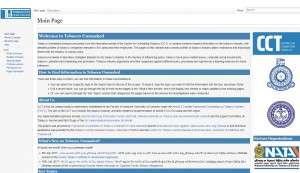New wiki site to unmask dealings of tobacco industry in Sri Lanka

A major new online project, TobaccoUnmasked, designed to reveal the activities and influences of the tobacco industry on public health policy, has been launched in Sri Lanka on the back of the success of TobaccoTactics – an initiative first established by the University's Tobacco Control Research Group.
Launched at an event in Colombo on Wednesday 19 July by Sri Lankan President, HE Maithripala Sirisena, the new TobaccoUnmasked wiki will be part of the new Centre for Combatting Tobacco (CCT) website.
CCT in Sri Lanka monitors the activities of the tobacco industry in line with Article 5.3 of the World Health Organization's Framework Convention on Tobacco Control. Article 5.3 relates to the setting and implementation of public health policies, specifically that they must be protected from the vested interests of the tobacco industry.
Using a wiki-based platform similar to Tobacco Tactics, TobaccoUnmasked will publish and disseminate findings relating to the industry. CCT is established in the Faculty of Medicine, University of Colombo, one of the oldest and prestigious medical faculties in the South East Asia Region.
Supporting Sri Lankan colleagues
Head of the Tobacco Control Research Group, Professor Anna Gilmore explained: "Progress in reducing tobacco use is continuously stymied by the actions of the tobacco industry. Researching and exposing how this industry works is therefore key to enabling progress. We are delighted to have been able to support our Sri Lankan colleagues in setting up their excellent observatory."
Visiting Research Fellow in our Department for Health from Sri Lanka, Dr Manuja Perera, has been instrumental in setting it up. She added: "Fellowship with Professor Anna Gilmore and the Tobacco Control Research Group was a great opportunity for me. I learned so much engaging in their day-to-day activities. The experiences and inspirations acquired at Bath will help me to function effectively and efficiently in the role of the Editor of TobaccoUnmasked."
Targeting of lower-income countries
Recent studies, including by the Tobacco Control Research Group at Bath, have highlighted how lower-income countries including in Asia and Africa are increasingly targeted by major tobacco companies and seen as key to future profitability.
Earlier this year, a network of the world's first tobacco industry observatories was convened at the University with representatives from TobaccoUnmasked in Sri Lanka, as well as international colleagues from Thailand, Brazil, South Africa and Lebanon. The idea of establishing a series of national observatories based on the University of Bath's model came from the FCTC Secretariat in recognition of the importance of such work.
The training course delivered by the TCRG was led by Dr Karen Evans-Reeves who said: "It was a pleasure to host and teach delegates from countries who wish to publish information on tobacco industry interference in policy in order to protect public health. Having Dr Manuja Perera working here with us has furthered our understanding of tobacco industry influence in Sri Lanka and in turn enabled the Sri Lankan Centre for Combatting Tobacco to replicate our industry research, monitoring and publication model. We look forward to continued collaboration."
Provided by University of Bath



















